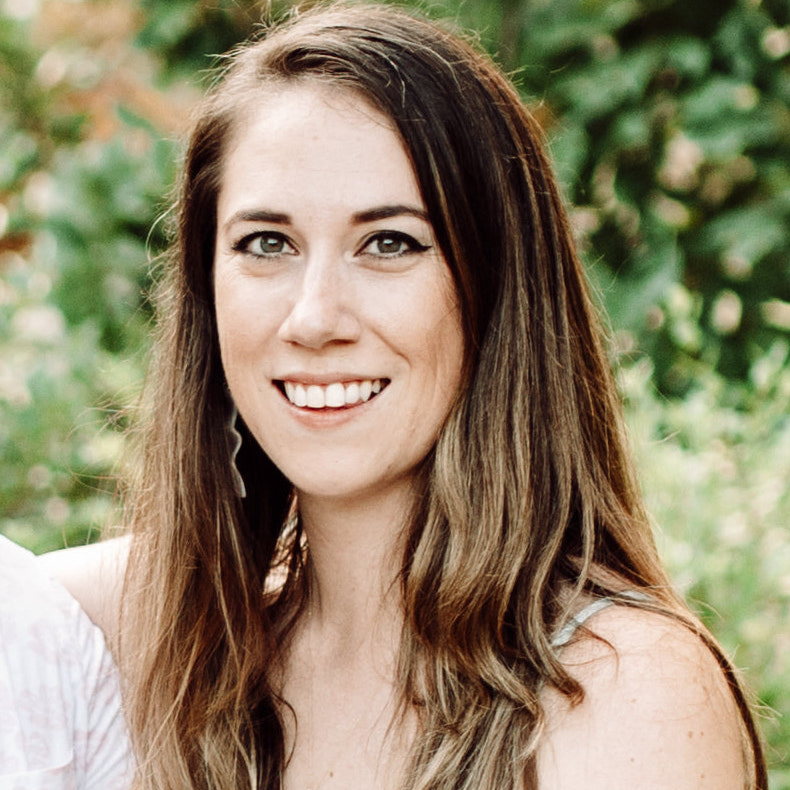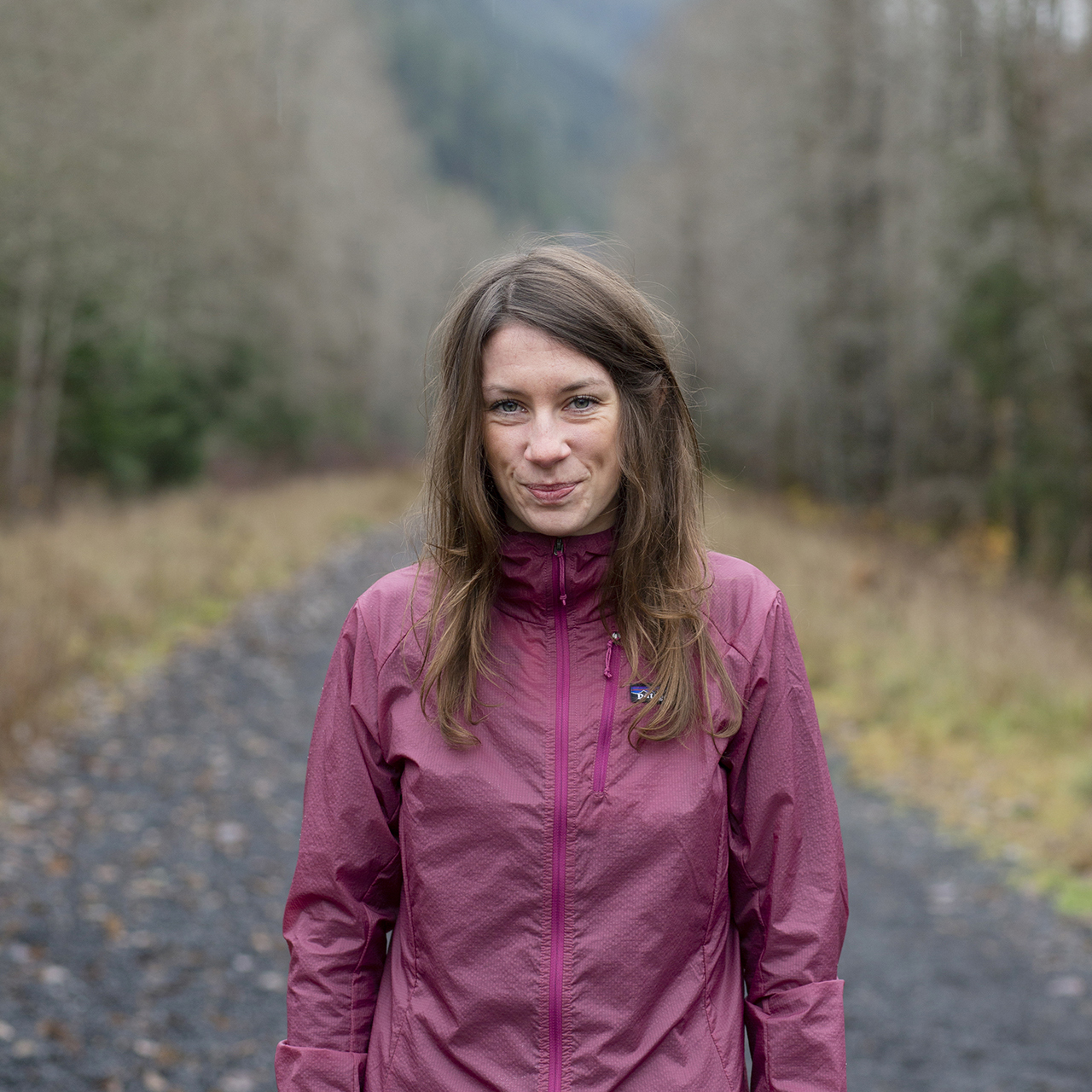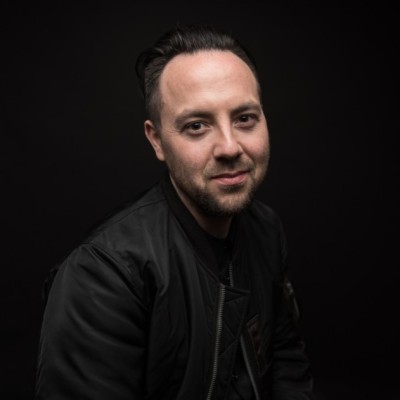Most podcast listeners have entertained an idle daydream about befriending the hosts of our favorite shows. Maybe they see our clever tweets and start following us; maybe we hit it off at a meet and greet and somehow manage to transcend our fan status. Colin Honigman is one of the rare few who has actually pulled off the fan-to-friend move. Not only that, he now co-hosts one of the shows he used to just listen to.
It all started with the trading card game Flesh and Blood. Colin started playing; then he joined a Discord for game aficionados. And he began listening to a podcast called Attack Action, named after one of the game moves. One of the hosts, Taylor Morrow, was in the same Discord as Colin; Colin replied to one of Taylor’s posts with an inside joke from the show.
“I instantly screenshotted it and sent it over to my co-host at the time. I was like, We have fans!” Taylor recalls. Colin and Taylor started chatting online, and ended up meeting in person. At that point, Taylor says, “Our friendship just kind of started to evolve from a parasocial one to a real one.” The rest is history: Colin offered to help with production on The Attack Action Podcast, and eventually ended up on-air.
We talked to Taylor and Colin about how they use YouTube, making sure you have a sustainable schedule, and how to set the right success metrics for yourself. This interview has been condensed and edited for length and clarity.

Flesh and Blood has a kind of complex structure that rewards a lot of time spent in gameplay. Did you design the podcast to be welcoming to new fans every episode, or is it a kind of jump in and swim thing?
Taylor: The backbone of our podcast has always been, like, your friends at the local game store who are on this game journey. That has appealed to a lot of people, whether you're a stay-at-home parent who doesn't get to play that much, or you're an aspiring professional player. So for the most part we're not holding your hand. We do break some things down, but we're trying to have a critical but casual conversation with each other every episode. We want it to feel like you as the audience are there with us, listening in to our conversation.
How did you establish yourself as an on-mic presence? Was there a learning curve there?
Taylor: It was easy because at the very beginning, it was just me and my best friend and one microphone around a kitchen table. It was 2020, and we did it in person, ‘cause we were the only people we hung out with at that time.
It was your podcast pod.
Taylor: Yeah, yeah. But the conciseness was not great—they would be like two and a half, almost three hours long, as we're just rambling. We slowly started to trim those down. Our podcast is still pretty long, two-ish hours, but it's much more concise.
And then we tried out a bunch of other stuff. We asked ourselves, what do podcasts do? They have recurring segments that you can look forward to, and that sort of thing. So we started trying things out, and figured out our formula.
Colin, what was it like for you to join a show that had already established its voice?
Colin: It was definitely hard. At first I was like, I will help do YouTube stuff. We kind of invented a YouTube show that was separate from the podcast. When the game has a new set of cards coming up, they do spoilers, where they'll send content creators cards and be like, “You get to spoil this on this date.” You can make a little video and share it with the community, as a thank you for making content about the game.
We were talking about how they kept not giving one to Attack Action, and I was like, “Oh, maybe it's because you guys don't have a YouTube presence.” We did that and almost immediately got a spoiler. They’ve never given us another one, though, which we're still baffled by. What did we do wrong?
Anyway, an attack action is a card type in the game, and it's also a step in game play. After that there's a reaction step. So I was like, we'll call the YouTube show The Reaction Step.
It's our little side show. We'll be more off the cuff, and respond to things that are happening. I'm a programmer and I do experiential stuff for work, so I knew enough about video editing and streaming that I could figure out how to do these things.
Being on Reaction Step felt pretty natural. I think the harder step was coming onto the main podcast. Then I felt the pressure. It was like, Be careful what you wish for! But mostly, it’s been easy the whole time.
I’m really interested in how podcasters navigate YouTube, because in some ways it’s a great platform—it’s easier to monetize, for instance, than podcasts are. But it’s also a visual platform, and podcasts traditionally don’t have visuals.
Taylor: We’ve tried a ton of different stuff. Initially the podcast was on the RSS feed only. Then we started adding the audio on YouTube, and having The Reaction Step with our faces. Even though it has a visual component, we put it in the RSS feed, too, because as a podcast fan, you just want more stuff to listen to of your favorite shows.
The Reaction Step has slowly died, and now our podcast is both on YouTube with our faces talking, with some visual gags, and it’s also on the RSS feed.
We do have a live news segment called Rathe Action News. So anytime there's breaking news in the game, we get together and go live right on YouTube. That just lives there.
We also have a Patreon exclusive podcast that has really fallen off, but my hope is to revamp that and keep that going. That one is for talking about stuff outside of the game that we're just interested in. But apparently we haven't been interested in anything else, so we haven't had anything to say.

I mean, it's a lot of work!
Colin: It is. I think we’ve reached a point where life has gotten back to like a regular busy state, and we all have had to reprioritize.
It has been really interesting to figure out where we exist, in that we've done a lot of other YouTube content as well. But the post-production step is difficult. It takes a lot of time and effort. We recently started paying someone to help us do podcast stuff, just like, can you just edit this for us? It would just save me time, and I would love that.
What’s your hardware situation at this point? What mics are you using?
Taylor: We all have the Shure M7. One of our hosts has an audio interface, whereas the rest of us just have a USB mic. If I’m going to be on video, I prefer cheap earbuds because I just don't like the earmuffs. The ones I have are gamer ones with an extra microphone that's like, hanging out over here. I feel too much like a dork.
And then we all have some version of a 1080p webcam. Mine's a Logitech. Just a regular one.
Colin: I started off with a headset mic. It was never loud enough. We kept having issues, so I bought my own Shure mic. And then we were looking at our Patreon funds and we're like, should we just buy everybody new mics so that we can all have the same microphone?
We're remote, and we're always going to be remote for the most part, so to get our quality sounding the same and looking the same was a good investment on our side.
And then what software do you use to edit?
Taylor: I mean, the cool thing about podcasting is how easy it is, right? Just one Yeti microphone and a basic understanding of Audacity. And just listening and being like, “Oh, I could adjust, this sounds better to me than this” or whatever, and watching YouTube videos and that sort of thing.
Then we branched out to two microphones and that was better. But then Audacity doesn't do a great job. You need a whole workaround to record two channels into Audacity. So then I used Waveform, which was really nice. I really liked editing the podcast in Waveform. But then we handed it over to Colin, and he’s made it all way better.
Colin: At first, doing Reaction Step was pretty simple. But when we increased to four hosts, things got a lot more complicated. Everyone had their own video, and all of a sudden, my computer was not strong enough to do it. I guess I was using the wrong codecs and getting away with it, because I was just doing one video. And now I had four massive videos.
One of our new hosts also hosts a Survivor podcast. He was like, “We use this thing called StreamYard.” We tried it out. It worked really good. We can record a nice layout for the video. We can just do one thing for the video, and we can separate all the audio, still get our nice clean audio recording.
An added benefit is that you can stream straight to YouTube if you want to do that. We've tried to do different streaming setups for the guys. Because Taylor, well, now he has Starlink, which is great. His internet connection got way better once he got that set up. It used to be rough. And then Isaac tried to stream and he's even more remote. So it’s a nice way to allow everyone access. If they want to do a stream, they can set up and do that.
You mentioned Patreon funds—talk to me about how you monetize the show.
Taylor: Patreon is our most consistent funding stream. We have a tiny kickback we get with an independent card shop—we have an affiliate link with them. They've really supported us, but the amount of money we make is so minuscule. This is still just a hobby for sure. We lose a bit of money.
We're still a podcast first, and not a YouTube channel, so we don't do click bait stuff, and make three videos a week or whatever. We're not content creators in that way, which, we've seen a lot of people come and go in our space because of that. At this point we're the longest running Flesh and Blood podcast. Part of the reason we are about to start our fifth year is because we have chosen a schedule and a level that we've been able to sustain.
I love that. I always love when people talk about different metrics for success—like, it doesn’t have to become a full-time job. You can make something that’s creative and communal, and that can also be a success.
That is the best way to put it. It is a creative and communal thing for sure. Basically the only thing we offer is a private Discord. If you're on our Patreon, we sometimes send you goodies and that sort of thing. But really what we're offering is that private Discord where you can talk to us directly.
I have relationships with people who, I don't even know what their face looks like. It's like Internet 1.0. I think more people should think about that when starting a podcast. Not everybody can be Serial or Radiolab, and you don't have to be.
What advice would you give to a beginning podcaster?
Colin: I would tell them to take it seriously. Like, we have our production meetings scheduled, our recordings are always scheduled at the same time, because finding time to get two adults together at the same time is work, and it can break your spirit.
And then I think beyond that, it’s about making something that you would enjoy. Because like Taylor was saying, this is the kind of podcast where we just talk about ourselves for 20 minutes, and Taylor gives an update about his lawn that he has to mow every couple of months because it's massive. That's what I liked in the beginning. It made me laugh to hear them talking about that stuff.
Taylor: The stuff that seems like a barrier, like the microphones, the editing, the technology part of it—it’s so much less of a barrier than you think. You literally could just use your phone. Set that up to record, stand around it or whatever, in your closet, and just talk about whatever you want to talk about, and then just upload it from there. Technology should not be the barrier.
What really is a barrier, like Colin said, is the time commitment. But once you make it a habit, then you can build on it.






%20(1).JPG)


























